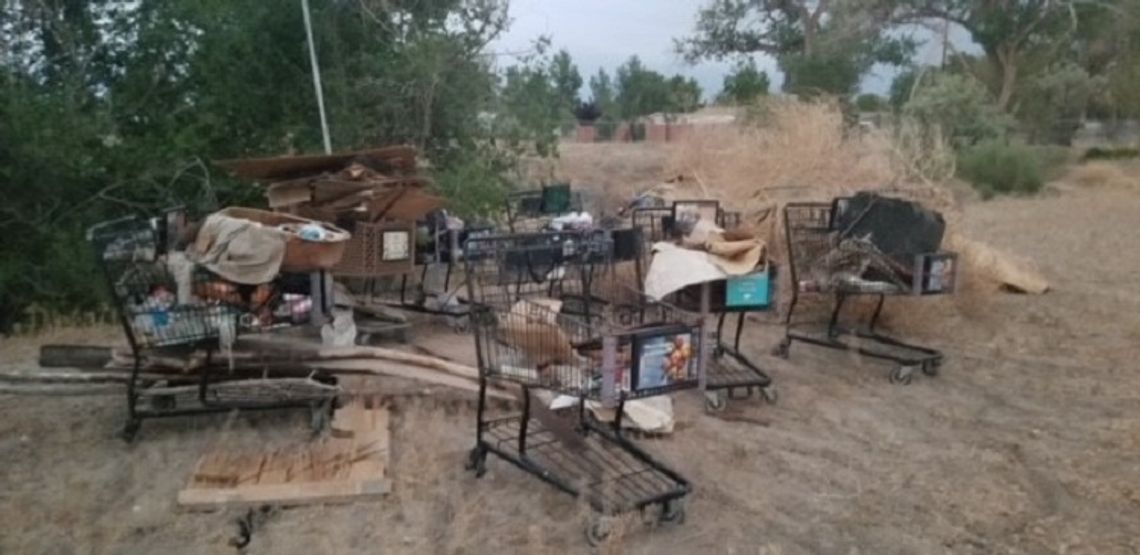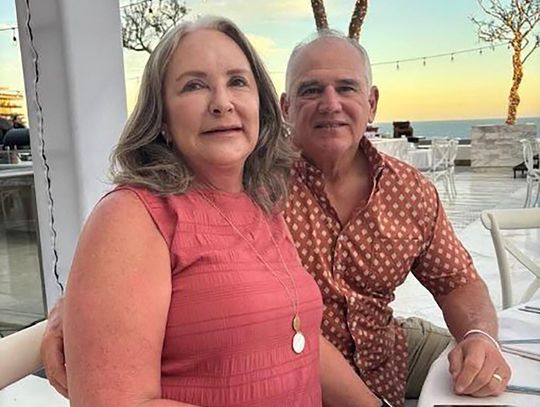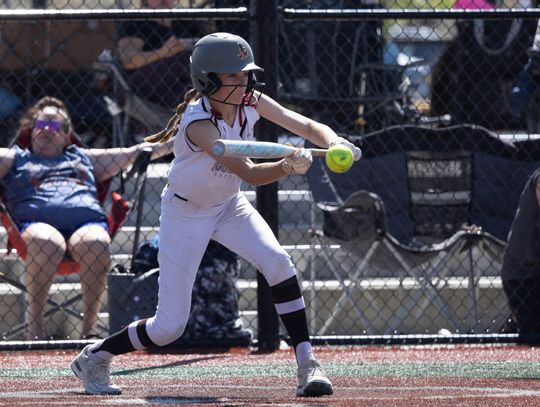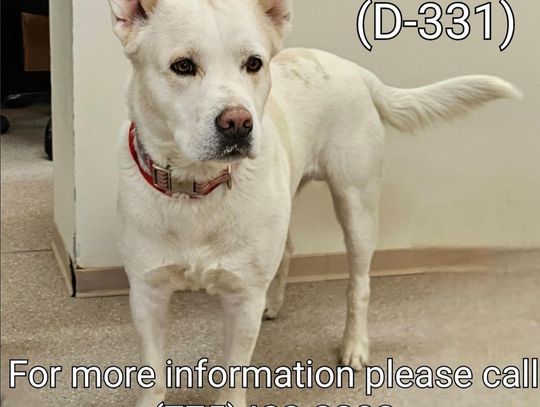Editor's note: Safeway has made the payment to the city for their efforts at gathering carts and the carts are back at the store as of today, Tuesday, June 21.
If you went shopping at Safeway this weekend and needed more than a couple of items, you were lucky to find a cart. One lady lurked at the tailgate of a couple who were painstakingly loading what appeared to be a month’s worth of groceries into the back of their SUV. She was willing to wait for what appeared to be the only available cart on the premises.
Like many towns across America, the sight of abandoned shopping carts on sidewalks and the inconvenience of them in streets and alleys has become unreasonably common in the City of Fallon. But unlike most cities, the City of Fallon does not have an ordinance addressing the issue. “We had a lot of complaints about grocery carts being left all over the city,” said Mayor Ken Tedford, “and these carts have really become a public nuisance.”
According to Mayor Tedford, the shopping cart issue has been going on for several years. Most recently in November of 2021, Bob Erickson, the chief of staff, along with Sean Rowe the city attorney, and chief of Police Kris Alexander met with local Walmart management about the issue of Walmart shopping carts being abandoned across the city. They were told that there wasn’t much that they could do, but they would send the concern up the chain of command and get back to the city.
But the city never has heard back.
“They also tried several times to meet with someone at Safeway,” said Tedford, “but no one would meet with them. They were rebuffed by the Safeway management.”
It was then the city began picking up cards and taking them to the city yard.
“We decided not to use city staff this time, we used to pick them up and have the explorers or the Boy Scouts return them,” said Tedford. “This time we hired an outside person and paid them $10 per cart to drive around the city and look for and gather carts so our people in public works can concentrate on public works function that serves the residents of the City of Fallon.”
“For another $5 he will take them back to the store, but no one will respond,” said Tedford.
The Fallon Post reached out to local Safeway management in late May for comment but did not receive a response.
Erickson said that two weeks ago the city finally got a call back from the manager at Safeway, Andrea McHone, who said they were out of carts at the store. “I told her we have 68 of their new carts and they could come get them for $680 or we would deliver them for $1,020. All we are asking is to be reimbursed for our costs,” he said.
But McHone told Erickson she did not have the authority to spend that kind of money. She is given $1,200 each year for a community budget used to make donations to various groups and youth sports. She was unable to do anything to get the carts back but would pass it on to corporate.
Apparently, according to Tedford, Safeway does have a person they pay on contract to come to Fallon to pick up carts, but when he does actually show up, he doesn’t know the community and doesn’t know where to look for the carts so he doesn’t like to come here. Walmart contracts with a company in Concord, California to pick up carts in communities, but they said during the meeting last year that it isn’t cost-effective to come get the carts in Fallon.
In other communities that do have a cart ordinance, costs to manage shopping carts can increase dramatically. Typical ordinances include requirements for each cart to have the name of the store and contact information for the person responsible for carts. Generally, if carts are found outside the property of the store, city employees contact the store to let them know a cart was found. If the cart is picked up within a certain amount of time, there is no fee. If the cart is not picked up in a timely manner, fees begin to be assessed.
In Sparks, Nevada five to 11 carts are charged $7 per cart for retrieval. When more than 11 carts are on-site at the city, the store must pay $15 per cart to retrieve them. If there are more than 25 carts are on site and the store fails to retrieve them, the city will return them, but the fees, $15 per cart, must be paid before the business license is renewed.
In 2002 Clark County, Nevada passed their first shopping cart ordinance and justified requiring the installation of electronic systems to keep carts on the premise, by saying the $30,000 price tag for the systems was minimal compared to the $80,000 stores lose when the carts go missing.
“Many citizens are unhappy,” said Tedford. “The carts are an eyesore, they block the sidewalks and the gutters so the street sweeper can’t get the job done. It’s very frustrating to try to keep as clean a city as we do and then someone allows carts everywhere and as a business, they won’t go pick them up and won’t meet with us. They aren’t willing to talk to us about how to solve the problem.”
Tedford said the city is working on the ordinance, but they have allowed it to sit hoping the two stores will help solve the problem themselves. “Many other cities adopt an ordinance, and we may have to as well.” An ordinance could require some kind of retention system to monitor the carts and would create a fee structure for retrieval. “We hate to pass ordinances that restrict business or add conditions,” said Tedford.
For the past two weeks, as more and more carts disappear from the Safeway store, the shopping cart issue has become more pressing. “This is a major inconvenience for their customers,” said Erickson, “it boggles the mind.”
Last week The Fallon Post finally received a response to our request for comment from the local Safeway management. “We are getting our carts back from the City of Fallon,” wrote McHone. “I've been diligently working with the City and my corporate office to resolve the issue. I am hoping to retrieve our carts this week and have them cleaned. I'm so happy for our customers. They have really been grilling us, understandably so.”
Unfortunately, as of Monday, noon, the carts were still not back. Erickson said on Thursday last week he was copied on an email between Safeway employees and their own accounting department that the paperwork from the local store requesting payment had not been completed properly and the payment had not been made.









Comment
Comments